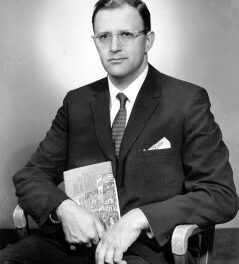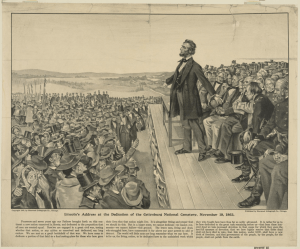We support our Publishers and Content Creators. You can view this story on their website by CLICKING HERE.
G.K. Chesterton was one of the very greatest men of his time. He will almost certainly be remembered as a great and solitary figure in literature, an artist in words and ideas with an astonishing fecundity of imaginative vision. He will almost certainly be remembered as a prophet in an age of false prophets.
Occasional Sermons, by Ronald Knox (434 pages, Cluny Media)
Blessed are they that saw thee and were honoured with thy friendship. For we live only in our life, but after death our name shall not be such. (Sir. 48:11)
The man whom we laid to rest the other day in the cemetery at Beaconsfield was one of the very greatest men of his time. If posterity neglects him, it will pronounce judgment not upon him, but upon itself. He will almost certainly be remembered as a great and solitary figure in literature, an artist in words and ideas with an astonishing fecundity of imaginative vision. He will almost certainly be remembered as a prophet in an age of false prophets. He warned us in spacious times that human liberties were threatened, and today human liberties are in debate. He warned us in times of prosperity against the perils of industrialism, and industrialism is labouring for breath. He warned us, when imperialism was a fashion, that nationalism was a force not easily destroyed; today nationalism is the shadow over men’s hearts.
Whether he was a great author, whether he was a true prophet, does not concern him now—he lies deaf to the world’s praise and secure from its catastrophes—nor does it concern us here. We are met, as Christians, to say farewell in our own fashion to a fellow-Christian who has outstripped us in the race for eternity. The most important thing about Chesterton, he would have been the first to say it, the most distinctive quality in Chesterton was a quality which he shared with some three hundred million of his fellow-men. He was a Catholic. The public discovered him in the early years of the century. It was not till twenty years later that he discovered himself. There is a legend told of his absent-mindedness that he once telegraphed home the words, “Am in Liverpool; where ought I to be?” And it took him fourteen years after the publication of his book Orthodoxy to find out that he ought to be in Rome.
I hope I do not wrong such a man in preaching his panegyric, when I confine myself to considering the position which belongs to him as a religious force; what Catholicism meant to him, and what he meant to Catholicism. In the case of a meaner man we should be content to celebrate his domestic virtues, his inconspicuous acts of charity. But Chesterton moved, though with the personal simplicity of a child, in a world of apocalyptic images; he saw his religion everywhere; it mattered furiously to him. What he did is in God’s hands; what he was is a matter of gracious recollection to his friends; it is the effect he made on the world that claims the world’s attention and its gratitude.
I would speak first of the influence which Chesterton’s earlier works had, on young men for the most part and on Protestants. And it is the only claim I have to stand here, in the place of older and closer friends, that at the time when his earlier works were published, I was myself a young man and a Protestant. I think it is true to say that the generation which grew up between the turn of the century and the Great War had a tendency all the time to react in favour of religious orthodoxy. The triumph of evolutionary materialism had seemed complete; the faith of Englishmen was laid out for burial, with the cynics, the pessimists, the positivists driving the last nails in its coffin. There was a reaction of which we should hear more if the events which began with 1914 had not decimated it and left its less characteristic specimens to represent it. I do not wish to discount the influence of other religious leaders, Anglicans like Scott Holland or Catholics like Hugh Benson. But the spear-head of that reaction was a man so plainly on the side of the angels that you did not stop to enquire whether he were an Anglican or a Catholic, G. K. Chesterton. The brilliance of his work, the wideness of his appeal set the fashion in favour of a religious attitude which the fashion of an earlier age had derided. He was conscious, himself, of the change of atmosphere when he wrote the introduction to his book, The Man Who Was Thursday. It is an extraordinary book, written as if the publisher had commissioned him to write something rather like the Pilgrim’s Progress in the style of the Pickwick Papers. And the poem which introduces it is a song not of triumph but of release from tension in the middle of a conflict.
But we were young; we lived to see God break their bitter charms—
God and the good Republic came riding back in arms;
We have seen the city of Mansoul even as it rocked, relieved—
Blessed are they that have not seen, but, being blind, believed.
The direct effect of that reaction in stemming the tide of religious liberalism has been in great part obliterated by the War. Its indirect effect, in producing conversions to the Catholic faith, made itself felt only during the War, when the annual figure of conversions went up from eight thousand to ten and from ten to twelve, where it has remained ever since. Meanwhile the prophet, who had acted as a signpost for us, remained himself outside the Church, content to fight a lonely battle for the philosophy he could see was right but could not see was ours. What changed him then four years after the Armistice? What was the new momentum which lent impetus to his thought, so that he no longer believed, being blind, but saw? I never knew yet a convert who could give a precise answer to that question. To give a precise answer we should have to understand, as we shall never understand it here, the economy of God’s grace. We can only say that if it were possible to deserve the grace of conversion, Chesterton had deserved it for years as no other man did; and, if he had to wait so long for it, there is hope in that for many a waiting soul, perhaps for some waiting soul here, which still cannot see the end of its despairs.
Meanwhile what had happened was, to Chesterton himself, admirably clear. He had the artist’s eye which could suddenly see in some quite familiar object a new value; he had the poet’s intuition which could suddenly detect, in the tritest of phrases, a wealth of new meanings and of possibilities. The most salient quality, I think, of his writing is the gift of illuminating the ordinary, of finding in something trivial a type of the eternal. In the first of his books which really made a name for him, The Napoleon of Notting Hill, the story opens at a moment when a government clerk, walking behind two friends in town coats, suddenly sees the buttons on their coats as two eyes, the slit underneath as a nose line; he has a vision of his two friends as two dragons walking backwards away from him. There is a law (he says in that connection) written in the darkest of the books of life, and it is this: If you look at a thing nine hundred and ninety-nine times, you are perfectly safe; if you look at it the thousandth time, you are in frightful danger of seeing it for the first time. That was all that happened when Chesterton was converted. He had looked for the thousandth time at the Catholic faith and for the first time he saw it. Nothing in the Church was new to him, and yet everything was new to him; he was like the man in his own story who had wandered round the world in order to see, with fresh eyes, his own home. That it was his home, neither friend nor foe had doubted; men did not even dare to whisper to him the old pathetic lie that converts are unhappy. Whether his work as a Catholic has been as influential as the work which he did when he was only a defender of Catholics is a question hard to resolve. He was no longer the latest fashion; he had reached the age at which most men have had their say; his health had begun to decline, and he was overworked, partly through our fault. Nor, I think, will the world ever give a just hearing to one who has labelled himself a Catholic. But this I will say, that, if every other line he wrote should disappear from circulation, Catholic posterity would still owe him an imperishable debt of gratitude, so long as a copy of The Everlasting Man enriched its libraries. This I will say, that whenever I ask an enquirer whether he has read any Catholic books his answer regularly begins, “I’ve read some Chesterton, of course.”
“We live only in our life and after death our name shall not be such”; few men of our time could refuse that epitaph to Gilbert Chesterton. Meanwhile “blessed are they that saw him and were honoured by his friendship”; they found in him a living example of charity, of chivalry, of unbelievable humility which will remain with them, perhaps, as a more effective document of Catholic verity than any word even he wrote. But the familiar voice, with its high chuckle of amusement, will reach us no longer; he, whose belief in immortality was so publicly influential, can give us no whisper of reassurance, now that he knows. Only we know what we would say if he heard the suggestion that nothing remains of him beyond what was interred at Beaconsfield.
The sages have a hundred maps to give;
They trace their crawling cosmos like a tree;
They rattle reason out through many a sieve
That stores the sand and lets the gold go free.
And all these things are less than dust to me
Because my name is Lazarus and I live.
The Imaginative Conservative applies the principle of appreciation to the discussion of culture and politics—we approach dialogue with magnanimity rather than with mere civility. Will you help us remain a refreshing oasis in the increasingly contentious arena of modern discourse? Please consider donating now.
The featured image is “Christmas Eve” (1887) by John Everett Millais, and is in the public domain, courtesy of Wikimedia Commons.

 Conservative
Conservative  Search
Search Trending
Trending Current News
Current News 






